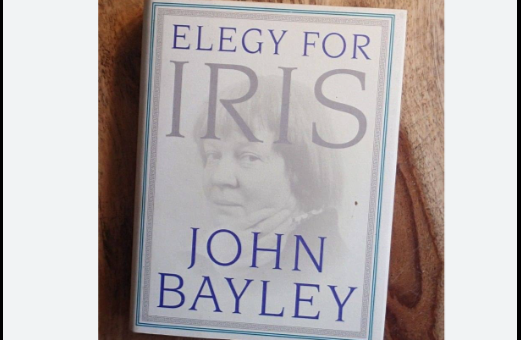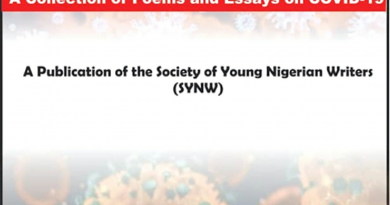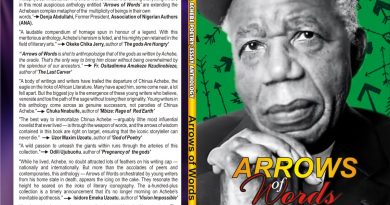Book Review: Elegy for Iris by John Bayley
This is why I read, Elegy for Iris, by John Bayley.
I read Elegy for Iris, because of the literary prowess of John Bayley as well as his impressive curriculum vitae. Another reason was because they made the book into a movie titled Iris, in which Kate Winslet starred.
Read: How To Create Characters Readers Care About
Book Review
Title: Elegy for Iris
Author: John Bayley
Length: 275 pages
Genre: Memoir, Non-Fiction, inspirational literature.
Publisher / Year: St. Martin’s Press/1999
Source: Secondhand Bookshop
Rating: .5/5
Date Read: 28/01/12
Reviewed By: Chioma Iwunze-Ibiam
A devoted husband of over forty years, John Bayley writes a touching yet glowing ode of the life of a philosopher and literary giant, Iris Murdoch.
Theirs is an extra-ordinary relationship which starts with a fleeting euphoria, one sunny morning when he sees her riding a bicycle past his window. Later they meet at a party. Again, they meet at The Johnson’s when they are invited to dinner.
Each time they meet, he’s drawn to her in an ineffable way. But his affection takes on a purer depth when during their ride home, she tells him about her recently completed novel. This meeting of two great, like minds, evolves into an interesting courtship filled with uncertainties and continues into a designedly childless marriage.
In analyzing their complex relationship in a lyrical tune characteristic of a classical mythology, he discusses how the intricacies of their characters act as a spice to their marriage. To John Bayley, Iris is an interesting enigma who stimulates his mind such that he writes:
“I was living in a fairy story –the kind with sinister overtones and not always a happy ending – in which a young man loves a beautiful maiden who returns his love but is always disappearing into some unknown and mysterious world, about which she will reveal nothing.”
The professionalism with which John Bayley writes about his wife is startling. He offers a troubling disclosure of her numerous (most illicit) love affairs with her acquaintances, most of them, literary elite.
I was torn between great admiration and sheer disgust when I learned one of these dalliances was with a one-time Nobel Prize winner and a professor who John refers to as Ditcher. Ditcher was a chronic womanizer who had many mistresses and an understanding wife who didn’t quite mind when her husband made love to Iris while she was in the same house.
Even more amazing, are the remarkable roles each plays in the other’s lives and careers. The most interesting part is in Iris’ second novel The Bell which begins with the following sentence, “Dora Greenfield left her husband because she was afraid of him.
A year later, she went back to him for the same reason.” What a thrilling beginning! Even john Bayley claims that he felt a growing inquisitiveness about the Dora Greenfield and Paul, her husband, which the early pages didn’t satisfy. So when he said something of the sort to Iris, she permitted him to write something for her. His contribution appeared in some of the early pages of The Bell.
So writes John Bayley, a professional literary critic who has once been Chairman of the Manbooker Prize. The above quoted paragraph was one of the many I had to read over and over.
Iris Murdoch is arguably one of the best English writers of her generation. For Later on, she went on to win the ManBooker prize in 1978. Arguably, her genius wanes when she later succumbs to Alzheimer’s disease. The memoir is informative on a lot a lot of issues.
It especially explores the challenges Iris Murdoch faces as she slowly succumbs to Alzheimer’s disease. Readers with an eye for fine language and imagery will enjoy the craft of John Bayley as he describes the ever elusive Iris Murdoch especially as he struggles as an Alzheimer spouse to figure out, the new Iris.
But not much changes; even in death. She is still revered for her works of literature and her contributions to philosophy. Iris Murdoch died in February, 1999. She was 79.
Final thoughts on the Review of Elegy for Iris by John Bayley
According to a blurb, this memoir is a message of hope and joy. I say it’s a masterpiece, an account of wonder and hope.





